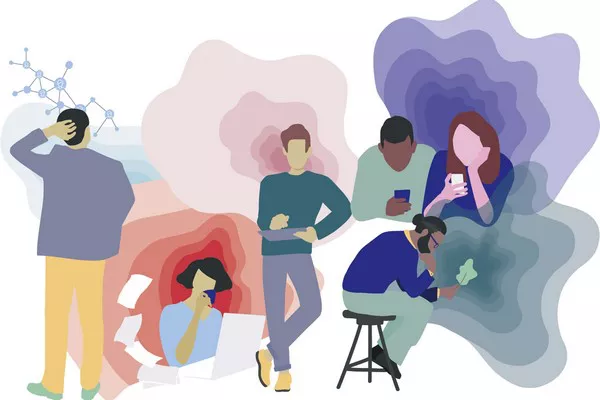In an increasingly digital world, the intersection of technology and mental health treatment has given rise to digital therapeutics—software-based interventions designed to augment or even replace traditional psychotropic medications. Over the past year, the FDA has cleared several prescription digital therapeutics (PDTs) for conditions like insomnia, substance use disorder, and ADHD, marking a paradigm shift in how psychiatric care is delivered.
One of the most notable approvals is Somryst, the first FDA-cleared digital therapeutic for chronic insomnia. Unlike over-the-counter sleep apps, Somryst delivers cognitive behavioral therapy for insomnia (CBT-I) through a structured, six-week program accessible via smartphone. A recent clinical trial published in Sleep Medicine demonstrated that 70% of participants using Somryst experienced significant improvements in sleep latency and maintenance, with effects comparable to those of sedative-hypnotic drugs like zolpidem (Ambien) but without the risk of dependence or next-day grogginess. For patients who prefer non-pharmacological options or have contraindications to sleep medications, digital therapeutics offer a viable alternative.
Another groundbreaking development is the use of PDTs for opioid use disorder (OUD). ReSET-O, an app developed by Pear Therapeutics, provides cognitive behavioral therapy alongside medications like buprenorphine. A study in Addiction found that patients using ReSET-O had a 40% higher retention rate in treatment programs and a 50% reduction in illicit opioid use compared to those receiving standard medication-assisted treatment alone. The app includes interactive modules on craving management, relapse prevention, and motivational interviewing, reinforcing the benefits of pharmacotherapy.
In the realm of ADHD, EndeavorRx is the first FDA-approved video game designed to improve attention in children aged 8–12. The game, which involves navigating a character through obstacle courses, targets neural networks associated with focus and impulse control. Clinical trials showed that one-third of participants no longer met the threshold for ADHD symptoms after four weeks of use, with effects sustained for up to three months. While not a replacement for stimulant medications, EndeavorRx provides an adjunctive option for families seeking non-drug interventions.
Critics argue that digital therapeutics may not be accessible to all patients, particularly those in low-income or rural areas with limited internet access. Additionally, long-term efficacy data are still emerging, and some clinicians remain cautious about relying too heavily on technology. However, proponents highlight the scalability and cost-effectiveness of these tools, which can bridge gaps in mental health care accessibility.
As the field evolves, future digital therapeutics may incorporate real-time biometric data (e.g., heart rate variability, EEG) to personalize interventions further. The integration of virtual reality for exposure therapy in PTSD and augmented reality for social anxiety is also being explored. While digital tools will not replace psychotropic medications entirely, they represent a transformative addition to the psychiatric toolkit, offering new ways to enhance treatment outcomes and patient engagement.
These three developments—rapid-acting antidepressants, pharmacogenomic-guided treatment, and digital therapeutics—underscore the dynamic progress in psychopharmacology, bringing us closer to more effective, personalized, and accessible mental health care.
You Might Be Interested In:
- Breakthrough in Understanding the Neurobiology of PTSD: The Role of the Default Mode Network
- Can Your Personality Really Change Over Time?
- New Research Links Gut Health to Depression, Opening Doors for Novel Treatments

